Meet the Speakers
Robert Austin, Ph.D.
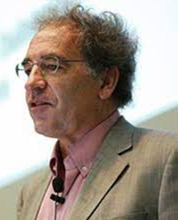
Robert Austin, Ph.D., is Professor of Physics at Princeton University. Prof. Austin received his BA in Physics from Hope College in Holland MI and his PhD in Physics from the University of Illinois Champaign-Urbana in 1976. He was a post-doc at the Max Planck Institute for Biophysical Chemistry from 1976-1979 and has been at Princeton University in the Department of Physics from 1979 to the present, achieving the rank of Professor of Physics in 1989. Prof. Austin is a Fellow of the American Physical Society, a Fellow of the American Association for the Advancement of Science and was elected a member of the National Academy of Sciences USA. He has served as a President of the Division of Biological Physics of the American Physical Society and is the present Chair of the U.S. Liaison Committee of the International Union of Pure and Applied Physics. Prof. Austin has served as the biological physics editor for Physical Review Letters, serves on numerous review panels for NIH, NSF, the Burroughs Wellcome Fund and NIST, and is the Editor of the Virtual Journal of Biological Physics. He won the 2005 Edgar Lilienfeld Prize of the American Physical Society.
Supriyo Bhattacharya, Ph.D.
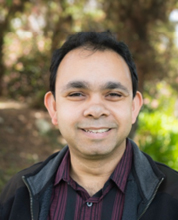
Supriyo Bhattacharya, Ph.D., is Assistant Research Professor at the Integrative Genomics Core at City of Hope. Dr. Bhattacharya is a trained computational structural biologist, bioinformatics expert, and an enthusiast in algorithm development. Dr. Bhattacharya obtained his BTech degree from the Indian Institute of Technology (IIT), Kharagpur, and completed his Ph.D. from NC State University in 2006. From 2006 to 2011, Dr. Bhattacharya was a Postdoctoral Fellow at the Beckman Institute of City of Hope Medical Center, where he studied G protein coupled receptor structure and dynamics using molecular dynamics simulations. During this time, he conceived and developed an information theory-based method (Allosteer) to analyze long distance communication (allostery) within proteins. This approach has been instrumental in analyzing complex protein dynamics, and in designing efficacious drugs by exploiting protein allostery. He is currently co-investigator in an RO1 for advancing information theory and Bayesian algorithms in the analysis of protein dynamics. Dr. Bhattacharya’s other interest is in studying how non-genetic mechanisms can influence, and in some cases, alter the course of evolution in diseases such as cancer. He has developed mathematical models to understand how mechanisms such as phenotypic switching can help cancer cells evade the effects of therapeutic toxicity and acquire resistance. He is currently developing simulation methods to explore the emergence of phenotypic plasticity as a trait to facilitate survival under appropriate environmental conditions.
Jianjun Chen, Ph.D.
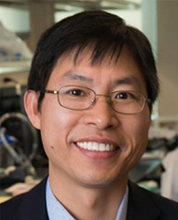
Jianjun Chen, Ph.D., is professor and chair, Department of Systems Biology at City of Hope. He is also the deputy director of the Center for RNA Biology and Therapeutics. Before that, he had been serving as an associate professor of cancer biology at the University of Cincinnati College of Medicine for a few years, after moving from University of Chicago where he was an assistant professor of medicine. Prof. Chen received his PhD degree from Shanghai Institute of Biochemistry, Chinese Academy of Sciences, Shanghai, China, and then conducted postdoc training with Janet D. Rowley, MD, at University of Chicago. He launched his independent laboratory in 2009 in the department of Medicine at the University of Chicago. Prof. Chen is a scholar of The Leukemia & Lymphoma Society (2017) and Researcher of the Year, The Pamela B. Katten Memorial Leukemia Research Foundation Award (2014). He also received The Leukemia & Lymphoma Society Scholar CDP Achievement Award in 2022. Prof. Chen is an internationally renowned pioneer and leader in the field of RNA cancer epigenetics (or epitranscriptomics). The discoveries from his group have demonstrated the functional importance of RNA modifications (especially m6A modification) and the associated modulators in cancer initiation, progression, metastasis, and drug resistance, cancer stem cell self-renewal, cancer metabolism and tumor immune evasion.
Shasha Chong, Ph.D.
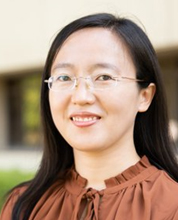
Shasha Chong, Ph.D., is Assistant Professor and Ronald and JoAnne Willens Scholar, Division of Chemistry and Chemical Engineering at California Institute of Technology. Dr. Chong obtained her BS from University of Science & Technology of China and her PhD from Harvard University. During her PhD, she developed novel single-molecule imaging methods and used them to understand DNA-protein interactions and the mechanism of transcriptional bursting in bacteria. During her postdoctoral research in the joint laboratories of Robert Tjian and Xavier Darzacq at University of California, Berkeley, she combined single-cell and single-molecule imaging tools with genome editing and genetics approaches to investigate how intrinsically disordered regions in human transcription factors perform functions in transcriptional regulation and oncogenesis. In her independent lab at Caltech, Dr. Chong employs multidisciplinary approaches to tackle the fundamental rules that govern the interaction behaviors of intrinsically disordered proteins and elucidate their roles in regulating gene transcription under normal and disease conditions. Dr. Chong is a Searle Scholar and a Pew-Stewart Scholar for Cancer Research.
Tsui-Fen Chou, Ph.D.
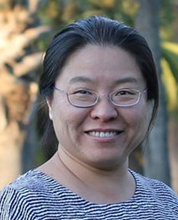
Tsui-Fen Chou, Ph.D., is Research Professor in the Division of Biology and Biological Engineering, and faculty Director, Proteome Exploration Laboratory, California Institute of Technology. Prof. Chou is interested in understanding the mechanisms of disease-causing mutations of p97/VCP ATPase, a key player in cell proteasome and autophagy function, and has used p97 inhibitors as tools to develop pathway-specific inhibitors. Her main research focus is on discovering underlying mechanisms that may lead to new therapeutic targets for cancer and rare diseases. Prof. Chou obtained her undergraduate degree from National Taiwan University, and her PhD from the University of Minnesota. Before she moved to Caltech, Prof. Chou was a faculty at the David Geffen School of Medicine, UCLA.
Subhajyoti De, Ph.D.
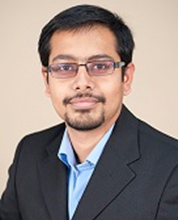
Subhajyoti De, Ph.D., is an Associate Professor at Rutgers Cancers Institute, Rutgers University. Dr. De completed his BS in engineering from the Indian Institute of Technology, Kharagpur, India before pursuing a PhD from the University of Cambridge, UK in the laboratory of Prof. Sarah Teichmann. There he developed computational biology approaches to study genetic variations and mutational signatures associated with human genome evolution. As a Human Frontier Science Program Fellow in the group of Prof. Franziska Michor at Harvard University, Dr. De investigated cancer as a somatic evolutionary process. He demonstrated that genetic and epigenetic abnormalities in cancer genomes show non-random, context-dependent patterns. In his independent laboratory, first at Univ. Colorado and currently at the Rutgers Cancer Institute of New Jersey, Dr. De is investigating cancer as a complex, adaptive system using genomic, computational, and systems-level approaches. He is a recipient of NIH/NCI PSOC Trans-network Young Investigator Award, and Webb-Waring Scholar award. His work has been supported by the NIH, United Against Lung Cancer Foundation and Boettcher Foundation.
Michael Elowitz, Ph.D.
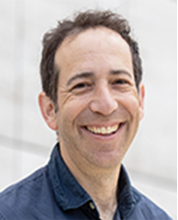
Michael Elowitz, Ph.D., is an HHMI Investigator and Professor of Biology and Biological Engineering at Caltech, who has helped establish foundations for synthetic biology and systems biology. His lab has shown that biological behaviors can be programmed using custom designed molecular circuits; revealed the pervasive role of stochastic fluctuations—or “noise”—in gene expression; and identified a set of biological circuit designs underpinning cellular and multicellular development. Prof. Elowitz studied Physics as an undergraduate at UC Berkeley and then obtained his PhD in Physics at Princeton, where he worked with Stanislas Leibler on cytoskeletal dynamics and the design of synthetic biological circuits. He then moved to Rockefeller University, where he worked in the laboratory of Arnold J. Levine, and with the Center for Studies in Physics and Biology, on gene expression noise. In 2003, he started his own laboratory at Caltech, where he brings synthetic, quantitative, and single cell approaches to multicellular, mammalian systems.
Jasmine Foo, Ph.D.
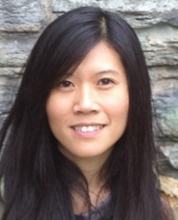
Jasmine Foo, Ph.D., is a Northrop Professor of Mathematics and co-Director of the Therapy Modeling and Design Center at the University of Minnesota-Twin Cities. Her research group is broadly interested in mathematical biology, evolutionary theory, and model-driven machine learning in biology and medicine. Current specific interests in the group currently include phenotypic plasticity and evolution, environment-driven drug resistance, treatment optimization and biomarkers for response in combination and immunotherapies, personalized treatment strategies, and modeling novel experimental platforms in oncology. Prof. Foo received her PhD (2008) in Applied Mathematics and undergraduate degree in Mathematics and Physics from Brown University. She did postdoctoral work with Franziska Michor at the Memorial Sloan Kettering Cancer Center and Dana Farber Cancer Institute (2008-2011), and then joined the University of Minnesota mathematics department in 2011.
Robert Gatenby, M.D.

Robert Gatenby, M.D., is the Department Chair of Radiology and co-director of Cancer Biology and Evolution Program at the H. Lee Moffitt Cancer Center in Tampa, Florida. Dr. Gatenby spearheaded the formation of a new program at Moffitt titled Integrative Mathematical Oncology (IMO). The IMO brings to the Cancer Center a cadre of applied mathematicians to collaborate with tumor biologists and clinical oncologists. The goal is to use the mathematics developed for other nonlinear dynamical systems to examine the physiology of a tumor incorporating factors such as phenotypic evolution, intracellular communication pathways and interactions with microenvironmental factors including therapies. The program fosters continuous interaction between mathematicians and experimentalists as they form explicit comprehensive theoretical models to serve as a framework for understanding cancer’s development, progression, and treatment. The IMO, led by Dr. Gatenby, represents an experiment in rethinking paradigms in medical research. A key purpose of the IMO is to provide quantitative methods that will allow experimentalists and clinicians to frame their hypotheses, simulate their experimental design in-silico, and identify first principles that govern cancer growth and treatment. Dr. Gatenby completed his MD degree from the University of Pennsylvania.
Trevor Graham, Ph.D.
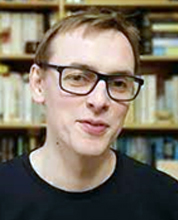
Trevor Graham, Ph.D., is Professor of Genomics and Evolution and the Director of the Centre for Evolution and Cancer at the Institute of Cancer Research (ICR) and a fellow of the UK’s Academy of Medical Sciences. Prof. Graham’s interdisciplinary expertise is at the intersection between evolutionary theory, mathematical modelling, genomics, and molecular pathology. His research focuses on measuring the evolutionary dynamics of cancer formation and exploiting this knowledge to improve patient outcomes. Prof. Graham obtained his master’s degree in mathematics from Imperial College London, UK, and his PhD in mathematical modeling from the University College London, UK. He did postdoctoral training at the London Research Institute, UK, and at University of California, San Francisco.
Sui Huang, M.D., Ph.D.
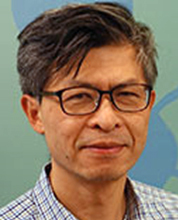
Sui Huang, M.D., Ph.D., Professor, Institute for Systems Biology, first studied medicine, followed by doctoral training in molecular biology and physical chemistry at the University of Zurich in the 1990s. He was a faculty at the Harvard Medical School/Children’s Hospital in Boston and at the University of Calgary, investigating cell fate control and tumor angiogenesis. Prof. Huang has championed the embrace of complex systems theory by biomedical research. In the 2000s, he demonstrated that cell fates are high-dimensional attractors of gene networks, supporting ideas originally proposed by Delbruck, Monod and Jacob, and Stuart Kauffman. More recently, he showed that cell fate decisions are bifurcations, or critical transitions, explaining the driving force of cell state change. Prof. Huang’s current work at the Institute for Systems Biology, which he joined in 2011, uses new technologies, including single-cell omics, along with the theory of non-linear stochastic dynamical systems to better understand the dynamics of health and disease, focusing on: cancer cell plasticity (treatment-induced stemness and progression) and wellness-disease transitions in Personal Medicine. In the era of big data, his current work also seeks to unite AI deep learning with human reasoning and formal theory to better understand paradoxical phenomena in medicine.
Mohit Kumar Jolly, Ph.D.
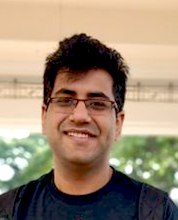
Mohit Kumar Jolly, Ph.D., is an Assistant Professor at Centre for BioSystems Science and Engineering at Indian Institute of Science, Bangalore. Dr. Jolly completed his Bachelors and Masters from IIT Kanpur, and obtained his PhD in Bioengineering at Rice University, where he investigated the presence of hybrid epithelial/mesenchymal phenotypes in cancer metastasis. He was a Gulf Coast Consortia Postdoctoral Fellow jointly at Rice University and UT MD Anderson Cancer Center with Prof. Herbert Levine and Prof. Samir Hanash, developing data-based and spatially extended computational models for tumor microenvironment. He investigates the emergent dynamics of regulatory networks implicated in cancer metastasis and therapy resistance, through integrating mechanistic mathematical modeling with high-throughput experimental data analysis. He has served as co-chair, Mathematical Oncology subgroup at Society for Mathematical Biology, and is the current Editor in Chief, NPJ Systems Biology & Applications.
Eugene Koonin, Ph.D.
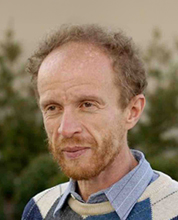
Eugene Koonin, Ph.D., NIH Distinguished Investigator, is an evolutionary biologist. Dr. Koonin is the leader of the Evolutionary Genomics Group at the National Center for Biotechnology Information (NCBI) at the NIH. Dr. Koonin's group performs research in many areas of evolutionary genomics. The overall gist of Dr. Koonin's research is to take advantage of the advances in comparative genomics and systems biology to address fundamental problems in evolutionary biology. Dr. Koonin graduated from Moscow State University, Moscow, Russia and received his PhD in Molecular Biology from the same University in 1983. He has been working in the fields of Computational Biology and Evolutionary Genomics since 1984. Dr. Koonin moved to the US in 1991, first, as a Visiting Scientist, and then, since 1996, as a Senior Investigator at the National Center for Biotechnology Information, National Library of Medicine, National Institutes of Health, Bethesda, MD. He is the author of “The Logic of Chance: The Nature and Origin of Biological Evolution” (2011) and the founder and Editor-in-Chief of Biology Direct, an Open Access, open peer-review journal. Koonin is a Fellow of the American Academy of Arts and Sciences, American Academy of Microbiology, a member of the National Academy of Sciences of the USA, a Foreign Associate of the European Molecular Biology Organization, and Doctor Honoris Causa of Universite Aix-Marseille (France).
Herbert Levine, Ph.D.
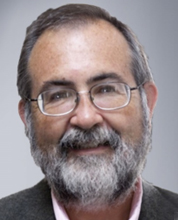
Herbert Levine, Ph.D., is Distinguished Professor of Physics and Bioengineering at Northeastern University. Prof. Levine specializes in research on nonequilibrium processes with applications for a wide variety of biological systems, most recently with a focus on cancer. Prof. Levine has a PhD and an M.A. in physics from Princeton and a BS in physics from Massachusetts Institute of Technology. He is a past chair of the American Physical Society’s Division of Biological Physics and currently serves on the NSF Mathematical and Physical Sciences Directorate Advisory Council. Prof. Levine is co-director of the National Science Foundation-supported Center for Theoretical Biological Physics, an elected member of the American Academy of Arts and Sciences and of the National Academy of Sciences, and a fellow of the American Physical Society.
Emma Lundberg, Ph.D.
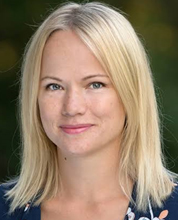
Emma Lundberg, Ph.D., is Associate Professor, Department of Bioengineering at Stanford University. Prof. Lundberg's research is focused on spatial proteomics and cell biology. At the interface between bioimaging and proteomics are fundamental aspects of human cell biology systematically assessed at a single cell level using an antibody-based approach. The aim is to build spatial models of human cells to understand how proteins are distributed in time and space, and how variations and deviations in localization can contribute to functional modulation as well as disease. Prof. Lundberg combines computational investigations with experimental analysis to identify the spatiotemporal expression of proteins at the level of single cells. Before joining Stanford, Prof. Lundberg was a Professor in Cell Biology Proteomics at KTH Royal Institute of Technology, Sweden, and still remains the Director of the Cell Atlas, of the Human Protein Atlas program.
Carlo Maley, Ph.D.
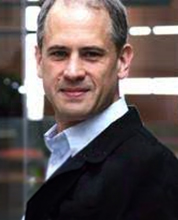
Carlo Maley, Ph.D., Director, Arizona Cancer and Evolution Center, Associate Professor, Biodesign Institute and School of Life Sciences, Arizona State University, is a biologist who specializes in cancer, evolution, and computational biology. He works at the intersection of these fields. Prof. Maley applies evolutionary and ecological theory to three problems in cancer. First, investigate neoplastic progression: the evolutionary dynamics among cells of a tumor that drive progression from normal tissue to malignant cancers. Second, examine acquired therapeutic resistance: the evolutionary dynamics by which therapies select for resistance and fail to cure cancer. Third, look into the evolution of cancer suppression mechanisms in large, long-lived animals such as elephants and whales (a problem called Peto’s Paradox). His team uses genomic data mining, phylogenetics, computational modeling and wet lab techniques to solve these problems. His main focus is on developing better methods to prevent cancer and improve cancer management. Prof. Maley obtained his master’s degree from the University of Oxford and his PhD from Massachusetts Institute of Technology.
Aurora Nedelcu, Ph.D.
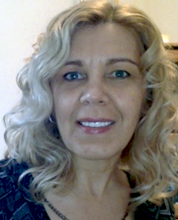
Aurora Nedelcu, Ph.D., Professor of Biology, University of New Brunswick, Canada, is an evolutionary biologist. Dr. Nedelcu’s general research interests center around understanding how and why biological systems evolve, especially in terms of major innovations and the emergence of new levels of complexity. Most of her current research is rooted in the framework of transitions in individuality and complexity (at a conceptual level) and of cellular responses to stress, gene co-option, and trade-offs (at a mechanistic level). She is using a combination of approaches (experimental and theoretical), spanning various levels of biological organization (genes, genomes, cells, individuals) and fields (genetics/genomics, molecular/cell/developmental biology, experimental evolution). Prof. Nedelcu received her BSc from Babes-Bolyai University (Cluj-Napoca, Romania) in 1988. She completed her PhD at Dalhousie University and then continued her training as a postdoctoral fellow in the Organelle Genome Mega sequencing Lab at the Universite de Montreal (1998) and as an NSERC Postdoctoral Fellow and Research Associate in the Ecology and Evolutionary Biology Department at the University of Arizona (1998 – 2002). Prof. Nedelcu also holds an Adjunct position in the Department of Ecology and Evolutionary Biology at the University of Arizona.
John Orban, Ph.D.
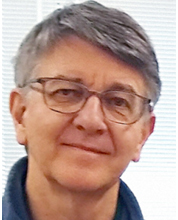
John Orban, Ph.D., is a Professor in the Department of Chemistry and Biochemistry, and the Institute for Bioscience and Biotechnology Research, at the University of Maryland. Prof. Orban’s research interests focus on the area of protein structural biology and design, particularly in understanding how the malleability of protein folds relates to biological function. High field solution NMR spectroscopy and other biophysical and biochemical methods are employed in his laboratory. Prof. Orban obtained his bachelor’s degree from the University of Adelaide, Australia, and his PhD in Chemistry from the Australian National University. He did his postdoctoral training as a CSIRO Postdoctoral Fellow in Biochemistry & Biophysics at McMaster University, Canada, and then in Biomolecular NMR Spectroscopy at the University of Washington.
Susan Rosenberg, Ph.D.
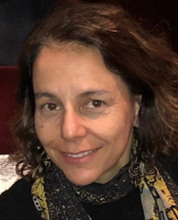
Susan Rosenberg, PhD, is the Ben F Love Chair in Cancer Research and Professor, Molecular & Human Genetics, Biochemistry, and Molecular Virology & Microbiology, Founder, Mechanisms in Cancer Evolution Program, Co-leader, Chromatin Biology Program, Dan L Duncan Comprehensive Cancer Center, Baylor College of Medicine, Houston. Dr. Rosenberg received a PhD in molecular biology at the University of Oregon working with Franklin Stahl, and did postdoctoral work with Miroslav Radman (Paris). Her lab studies molecular mechanisms that promote genome stability and instability, and their impacts on evolution, infectious disease, and cancer. Her lab originated technologies for studying DNA damage in living bacterial and human cells and discovered mechanisms of mutation formation activated by stress responses, which potentially accelerate evolution when cells are poorly adapted to their environments and are now evident from bacteria to cancer. Rosenberg founded the Gordon Research Conference on Molecular Mechanisms in Evolution, and founded and led the Mechanisms in Cancer Evolution Program in the Dan L Duncan Comprehensive Cancer Center. She has received two NIH Director’s Pioneer Awards, a WM Keck Foundation Award, the Biosphere and Humanity Medal (Russian Academy of Medicine), the Eli Lily / National Cancer Institute of Canada William Rawls Prize, the Young Scientist Award of the Genetics Society of Canada, and two Michael E DeBakey MD Awards for Excellence in Research. Dr. Rosenberg is a fellow (elected) of the American Association for the Advancement of Science, a member of the American Academy of Microbiology, served on the Senior Editorial Board of SCIENCE, and in various roles for the American Association for the Advancement of Science, currently Board of Directors (elected).
Ravi Salgia, M.D., Ph.D.
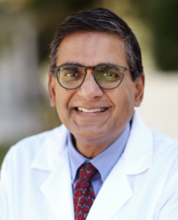
Ravi Salgia, M.D., Ph.D., is Chair of Medical Oncology & Therapeutics Research at City of Hope National Medical Center, in Duarte, California. Dr. Salgia also holds the Arthur and Rosalie Kaplan Chair in Medical Oncology and is the Associate Director for Clinical Sciences Research in the City of Hope’s Comprehensive Cancer Center. Previously, Dr. Salgia was Professor of Medicine, Pathology and Dermatology, and the Director of the Thoracic Oncology Program, and Aerodigestive Tract Program Translational Research at the University of Chicago. His research interests focus on novel therapeutics against lung cancer. Prior to his tenure at University of Chicago School of Medicine, Dr. Salgia was faculty at the Dana-Farber Cancer Institute and Harvard Medical School. Dr. Salgia earned his undergraduate summa cum laude in mathematics, biology, and chemistry, and then his MD and PhD degrees from Loyola University in Chicago, IL, where he also completed fellowships in neurochemistry and physiology. He continued his postgraduate training with an internship and residency in internal medicine at The Johns Hopkins University School of Medicine in Baltimore, MD, followed by a fellowship in medical oncology at Dana-Farber Cancer Institute in Boston, MA, during which time he also served as a clinical fellow at Harvard Medical School in Boston. Dr. Salgia maintains a strong interest in chaos theory and fractals and their application to cancer, especially lung cancer. Dr. Salgia has been honored with several awards including the Language Award in Spanish (1977), the Bausch and Lomb Award in Science (1977), the Father Gerst Award in Mathematics (1981), the Dana-Farber Friends’ Award in Oncology (1991), Best Doctors in America (2005), Top Doctors in America (2008), Chicago Magazine’s Top Cancer Doctors (2012 - 2015), AASCR (Asian American Science Cancer Research) Top Scientist Award (2013), Asclepious Award (2016), Indo-American Cancer Association (IACA) Outstanding Lifetime Achievement in Oncology Award (2017), Maine South Wall of Honor (2017), Pasadena Magazine’s Top Doctors (2018), Sun Pharma Foundation Research Award in Medical Sciences (2019), Southern California’s Super Doctors (2019), Los Angeles Magazine Top Doctor (2019), Southern California Super Doctors (2019), ASCO Excellence in Teaching Award (2022), and an American Lung Association Champions Unite Award (2022). He is also one of the NCCN board of directors as well as American Lung Association Southern California.
Günter P. Wagner, Ph.D.
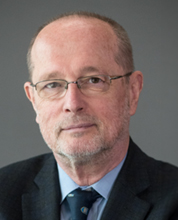
Günter P. Wagner, Ph.D., Alison Richard Professor Emeritus of Ecology and Evolutionary Biology, Yale University, is an evolutionary geneticist with training in biochemical engineering, zoology, and mathematics from the University of Vienna, Austria. He did postdoctoral studies at the Max Planck Institutes for Biophysical Chemistry (Gottingen, Germany) and for Developmental Biology (Tübingen, Germany). From 1996 to 2001 he was Chair of the Department of Ecology and Evolutionary Biology at Yale. Prof. Wagner's research program aims at understanding the evolution of complex characters. Prof. Wagner is a member of the National Academy of Sciences. He was awarded the Daniel Giraud Elliot Medal from the National Academy of Sciences for his fundamental contributions to our understanding of the evolution of complex organisms.